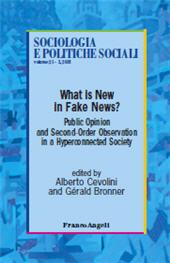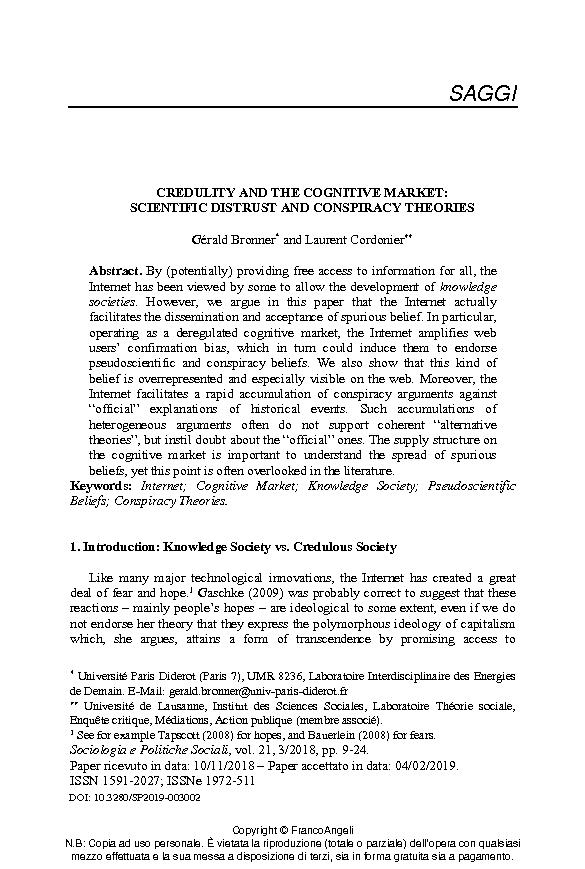Credulity and the cognitive market : scientific distrust and conspiracy theories
9-24 p.
By (potentially) providing free access to information for all, the Internet has been viewed by some to allow the development of knowledge societies. However, we argue in this paper that the Internet actually facilitates the dissemination and acceptance of spurious belief. In particular, operating as a deregulated cognitive market, the Internet amplifies web users' confirmation bias, which in turn could induce them to endorse pseudoscientific and conspiracy beliefs. We also show that this kind of belief is overrepresented and especially visible on the web. Moreover, the Internet facilitates a rapid accumulation of conspiracy arguments against "official" explanations of historical events. Such accumulations of heterogeneous arguments often do not support coherent "alternative theories", but instil doubt about the "official" ones. The supply structure on the cognitive market is important to understand the spread of spurious beliefs, yet this point is often overlooked in the literature. [Publisher's text].
Ist Teil von
Sociologia e politiche sociali : 3, 2018-
Artikel aus derselben Ausgabe (einzeln erhältlich)
-
Informationen
ISSN: 1972-5116
KEYWORDS
- Internet, Cognitive Market, Knowledge Society, Pseudoscientific Beliefs, Conspiracy Theories



